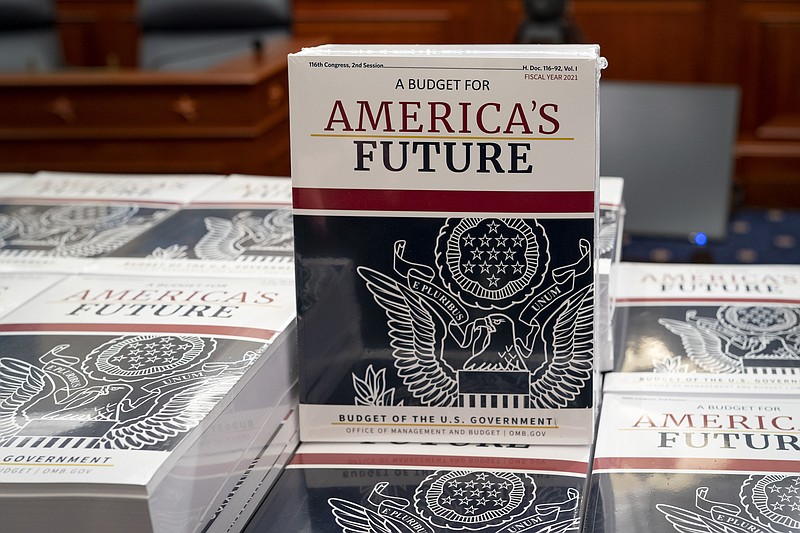Donald Trump's supporters like to reassure themselves that the president is a tell-it-like-it-is fellow who delivers on his promises in a way that his predecessors and other more traditional politicians did not. Yet the $4.8 trillion budget he submitted to Congress on Monday once again demonstrates how that view is an absolute fiction.
In the 2016 presidential campaign, Trump promised to eliminate the deficit (and all existing U.S. debt) in eight years. Instead, the budget deficit is two-thirds larger than the deficit he inherited, and his latest spending plan expects the shortfall to linger into 2035. And that's only because the budget is built on a mountain of falsity - from an expectation that the economy will grow by 3% (which it hasn't in the Trump era) to the idea that the Democratically held U.S. House of Representatives will accept a slew of damaging social safety net reductions, including cuts to Medicaid and food stamps, while substantially increasing spending on the military and a border wall.
Make no mistake, there's no fiscal magic the president or his loyal minions can perform that can hide the fact that the federal budget deficit has ballooned during his watch, chiefly the result of tax cuts that were deeply skewed to the benefit of the nation's wealthiest citizens. During Barack Obama's final year in office, the difference between what the U.S. took in from tax revenues and what it spent was less than $600 billion. Now, it's expected to exceed $1 trillion, a level the nation hasn't seen since 2012 when the U.S. was still recovering from a recession of historic proportions, and overall debt has grown by $3 trillion.
In good economic times, deficits are supposed to go down, as they did during President Obama's second term. In 2001, the U.S. experienced its last budget surplus, a result of record growth (as well as tax increases and significant cost containment) in the Bill Clinton years. What makes this particularly worrisome is that the U.S. is due for an economic downturn after the "sugar high" of the Trump tax cuts. That gives the next president fewer tools, like deficit spending, to prime the pump.
Nothing screams presidential cynicism quite like Trump's budget plan to cut foreign aid (always an unpopular budget item but often the best and most cost-efficient way to avoid future military conflicts) or allocating $2 billion for more wall on the Mexican border. But wait, it gets worse. The budget practically declares war on American cities, offering billions of dollars in new spending to assist struggling rural communities (known as "Revitalizing Rural America"), while trimming programs that are vital to urban areas.
There is less for education and for health and a lot less for the U.S. Environmental Protection Agency, which Trump would like to cut by more than one-quarter.
If this pattern of budget choices looks familiar, that should come as no surprise. In an election year, Trump is counting on the budget's headlines to mean more than its ultimate failure in the halls of Congress (just as his previous budgets have failed). It is budgeting for Twitter followers, not for reality and certainly not to win over the legislative branch.
It's not unlike bestowing the nation's highest civilian honor on a "shock jock" radio talk-show host best known for his racist, homophobic and misogynistic diatribes. It's not just that Trump's core supporters like the decision, it's that they love the discomfort it causes anyone who is not a member of their cult.
We fully expect the budget priorities to show up at future Trump political rallies, even as they die a quick and unmourned death in Congress. At some point in the months ahead, it will be up to more serious folks, Democrats and Republicans, to quietly devise a more workable and rational stopgap spending plan rather than a list of political talking points to be touted in rented auditoriums of MAGA faithful, on QAnon social media sites or right-wing media talk shows.
The Baltimore Sun
